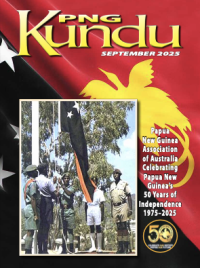21. Doug Parrish and the difference between kiap and defending officer
Paul Quinlivan’s Snapshots
I could give any number of cases which proved how deeply Kiaps had taken to heart Monte’s lectures about the difference in their exercise of the various functions which they were sworn to perform. In fact, on the last analysis, every time they put forward a client’s defence they were ‘going against the grain’ of their Kiap function or their police function or their ‘administration of quiet governance’ function.
The case of The Queen against Gumi at Lae on 7 April 1952 illustrates what I mean but, before describing it, I should mention that, in those days, there was no position of District Commissioner. At the top of the list of ‘people with power’ were the District Officer administering the district (whose power was restricted to his district) and a group of three or four men with the special rank of District Officer (Magisterial) whose power extended everywhere. And the senior of this second group of godlike creatures, who brooked no interference, was Ernie Britten who had been in the Service since 1929.
He had conducted a Preliminary Inquiry into a Garaina case of Grievous Bodily Harm and decided that it should be committed for sentence. Doug Parrish had been brought in from Finschhafen and, since he had been told that he was Defending Officer, he saw his client and his client told him that Ernie Britten was wrong. What to do? Garaina was a very remote place, bordering the Uncontrolled Area, and Grievous Bodily Harm cases were of vital importance to the ‘administration of quiet governance’ function because Payback could lead to intertribal war. Ernie Britten’s decision that the case warranted a committal for sentence meant that the witnesses had not been brought in. If Doug put forward his client’s claim that Ernie Britten had made a wrong decision, this would mean that a special patrol would have to be mounted to collect them. From the point of view of the ‘Kiap function’, this was disastrous because it would not only divert scarce personnel from essential duties but it would involve a ‘loss of face’ because, as Monte was always telling everyone (but not in these words) OLI would know that Masta Britten had made a fool of himself. And there was the fact that Ernie Britten would be sitting in the back of the court. It would be very easy to ‘cover up’ and let the committal for sentence take its normal course. But Doug Parrish decided that his duty required that he contest the committal and this he did. Successfully. And I felt that this was a good augury for the future when the Trust Territory became an Independent Nation.


